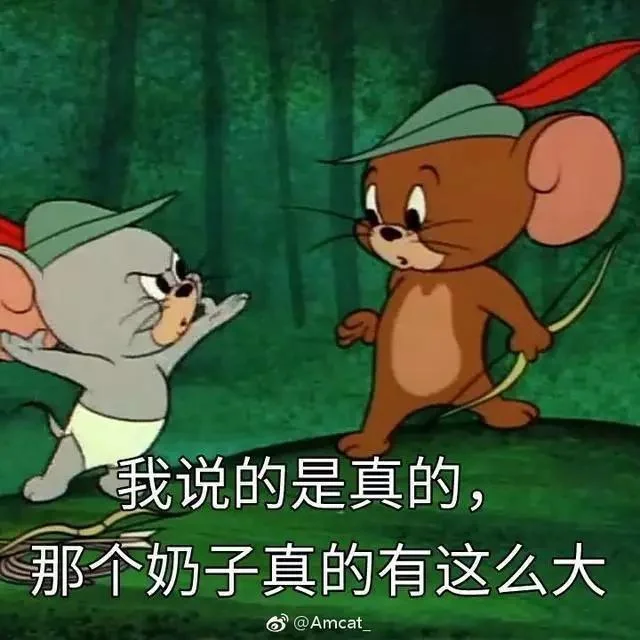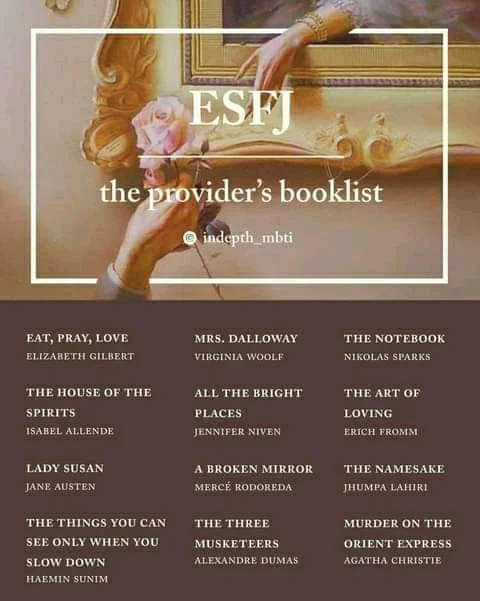We use cookies on our website for a number of purposes, including analytics, performance, and advertising. Learn more.
OK!
Boo
SIGN IN
Your MBTI-Enneagram Mix: Exploring ESFJ in Depth
By Derek Lee
The Myers-Briggs Type Indicator (MBTI) and the Enneagram are two distinctive tools used in understanding personality types. While the MBTI focuses on how people perceive the world and make decisions, the Enneagram delves deeper into core motivations and fears. This article explores the ESFJ personality type within the framework of both MBTI and Enneagram, shedding light on the intricate patterns and behaviors that emerge from this combination.
Understanding these unique personality blends is crucial. It allows for a richer and more nuanced understanding of oneself and others. The insights garnered from this exploration can aid in personal growth, improve interpersonal relationships, and enhance self-awareness. As we journey through the various facets of the ESFJ type combined with each Enneagram type, we aim to provide valuable insights into their distinct traits, strengths, and potential areas for growth.
What are MBTI and Enneagram
The MBTI is a psychological tool developed by Isabel Briggs Myers and Katharine Cook Briggs, offering insights into personality by categorizing individuals into 16 different types based on four dichotomies: Extraversion-Introversion, Sensing-Intuition, Thinking-Feeling, and Judging-Perceiving. The ESFJ type is characterized by Extraversion, Sensing, Feeling, and Judging qualities, often seen as sociable, organized, and caring individuals.
The Enneagram, on the other hand, is a model of the human psyche comprising nine interconnected personality types. Each type is driven by distinct core motivations, fears, and desires. Understanding one's Enneagram type can lead to profound self-discovery and personal transformation.
Both MBTI and Enneagram offer valuable, yet different perspectives on personality. While MBTI focuses on how individuals interact with the external world, the Enneagram delves into the inner emotional landscape and core motivations. Combining these two systems provides a comprehensive and holistic view of personality.
How ESFJ Interacts With the Enneagram Types
The intersection of the ESFJ personality type with the nine Enneagram types presents a fascinating array of characteristics. This section delves into how each Enneagram type influences the inherent traits of the ESFJ, resulting in unique blends of personality traits.
ESFJ Type 1
When an ESFJ aligns with Enneagram Type 1, the "Perfectionist," they often exhibit a heightened sense of responsibility and an earnest desire to improve their environment. This combination results in a personality that is both nurturing and principled. They are often driven by a deep sense of duty and moral integrity. However, this combination can also lead to internal conflicts, particularly in balancing personal desires with societal expectations, as noted by psychologist Jonathan Haidt in his exploration of moral foundations theory.
ESFJ Type 2
ESFJs who identify with Enneagram Type 2, the "Helper," amplify their innate tendency toward altruism and supportiveness. Renowned psychologist Carl Rogers' person-centered approach resonates deeply with this blend, emphasizing empathy and unconditional positive regard. These ESFJs are extraordinarily caring and emotionally attuned to the needs of others. However, they may struggle with overextending themselves and neglecting their own needs.
ESFJ Type 3
The combination of ESFJ with Enneagram Type 3, the "Achiever," creates a dynamic personality that is ambitious and highly attuned to societal standards of success. This blend can be seen through the lens of Abraham Maslow's hierarchy of needs, particularly the need for esteem and recognition. These ESFJs are goal-oriented and excel in social settings, but they may face challenges in balancing their need for achievement with their intrinsic values.
ESFJ Type 4
ESFJs resonating with Enneagram Type 4, the "Individualist," possess a unique blend of empathy and emotional depth. This combination often results in a heightened sense of identity and a quest for authenticity, themes frequently explored in the works of Carl Jung. These individuals are deeply compassionate and seek meaningful connections, yet they might struggle with feelings of being misunderstood or different from others.
ESFJ Type 5
An ESFJ aligned with Enneagram Type 5, the "Investigator," often exhibits a curious blend of sociability and introspection. This type is marked by a desire for knowledge and understanding, echoing the cognitive theories of Jean Piaget. While they are thoughtful and analytical, these ESFJs might face challenges in balancing their need for social interaction with their intrinsic desire for privacy and intellectual exploration.
ESFJ Type 6
ESFJs who identify with Enneagram Type 6, the "Loyalist," are characterized by their strong sense of loyalty and responsibility. This blend often reflects the principles of social contract theory, as discussed by philosophers like John Rawls. These individuals are reliable and committed, yet they may experience anxiety about security and stability, leading to potential internal conflicts.
ESFJ Type 7
When an ESFJ aligns with Enneagram Type 7, the "Enthusiast," they exhibit a lively and optimistic disposition. This combination resonates with the positive psychology movement, particularly the work of Martin Seligman. These ESFJs are adventurous and enjoy seeking new experiences, but they might struggle with impulsivity and avoiding negative emotions.
ESFJ Type 8
ESFJs associated with Enneagram Type 8, the "Challenger," demonstrate a unique blend of assertiveness and protectiveness. Influenced by the assertive theories of Alfred Adler, these individuals are confident and strong-willed, often advocating for others. However, they may face challenges in balancing their assertiveness with their inherent desire to maintain harmonious relationships.
ESFJ Type 9
An ESFJ with Enneagram Type 9, the "Peacemaker," tends to exhibit a calm and accommodating nature. This blend aligns with the conflict resolution theories of Kenneth Thomas and Ralph Kilmann, emphasizing harmony and avoidance of conflict. These ESFJs are supportive and agreeable, but they may struggle with passivity and avoiding addressing personal needs or conflicts directly.
ESFJ Type 1w9
ESFJs who align with Enneagram Type 1w9 blend the principled nature of the Type 1 with the peace-seeking traits of Type 9. This combination, often reflecting Erik Erikson's theories on trust and autonomy, creates individuals who are both ethical and calm. They strive for a balanced approach to life, seeking to uphold their ideals while maintaining inner and outer peace. However, this blend can lead to internal conflicts between their desire for perfection and their need for tranquility.
ESFJ Type 1w2
The ESFJ 1w2 type combines the reforming zeal of Type 1 with the caring nature of Type 2. This blend, which resonates with the developmental theories of Erik Erikson, especially in the stages of initiative and guilt, results in a personality that is both conscientious and nurturing. They are motivated by a desire to do good and help others, but they may struggle with the balance between their high standards and their need to be liked and appreciated.
ESFJ Type 2w1
ESFJs of the 2w1 subtype merge the helpfulness of Type 2 with the moral integrity of Type 1. This combination, mirroring aspects of Karen Horney's theories of social and compliant personalities, creates individuals who are both altruistic and principled. They are often community-oriented and strive to meet the needs of others in a responsible manner. However, they may encounter difficulties in reconciling their need to be needed with their strong sense of right and wrong.
ESFJ Type 2w3
An ESFJ 2w3 combines the nurturing aspects of Type 2 with the ambition and image-consciousness of Type 3. This blend can be seen through the lens of Donald Winnicott's theories on true self and false self, where these individuals strive for both authenticity in their caring nature and a desire for recognition. They are sociable and driven, but may face conflicts between their genuine desire to help and their need for approval and success.
ESFJ Type 3w2
ESFJ 3w2s blend the driven and success-oriented nature of Type 3 with the generous and people-pleasing qualities of Type 2. This combination, echoing the motivational theories of Abraham Maslow, particularly in the realms of esteem and belongingness, results in individuals who are charismatic and attentive to others' needs. They are goal-oriented and empathetic, but may struggle with balancing their ambition with their genuine desire to assist others.
ESFJ Type 3w4
The ESFJ 3w4 subtype combines the efficiency and image-consciousness of Type 3 with the individualism and emotional depth of Type 4. Influenced by the humanistic approaches of Carl Rogers, these individuals seek to achieve and be recognized while also desiring to be seen as unique. They are ambitious and expressive, but they might face internal conflicts between their need for achievement and their desire for authenticity.
ESFJ Type 4w3
ESFJ 4w3s embody a mix of the emotional depth and individuality of Type 4 with the ambition and adaptability of Type 3. This blend leads to a personality that is both creative and goal-oriented. They are often in touch with their emotions and seek to express their uniqueness through their achievements. However, they may struggle with fluctuating self-esteem and the need to be seen as both authentic and successful.
ESFJ Type 4w5
An ESFJ 4w5 integrates the introspective and sensitive nature of Type 4 with the analytical and curious traits of Type 5. This combination creates individuals who are both emotionally rich and intellectually inclined. They often have a unique perspective on the world and seek to understand the deeper meaning behind their experiences. This blend can result in conflicts between their need for emotional expression and their desire for intellectual understanding.
ESFJ Type 5w4
ESFJs who are 5w4s combine the intellectual curiosity of Type 5 with the emotional depth and individualism of Type 4. This unique blend leads to a personality that is introspective, innovative, and emotionally nuanced. These individuals often approach life with a deep desire to understand and explore, yet they are also attuned to their emotional experiences. They might face challenges in balancing their need for intellectual exploration with their emotional sensitivities.
ESFJ Type 5w6
The ESFJ 5w6 subtype merges the analytical and detached nature of Type 5 with the loyalty and security-oriented nature of Type 6. This combination results in individuals who are thoughtful and inquisitive, yet also value stability and support in their relationships. They are often skilled at problem-solving and seek understanding, but may struggle with anxiety and indecision, especially when feeling pressured or insecure.
ESFJ Type 6w5
ESFJs who identify with the 6w5 subtype combine the loyalty and commitment of Type 6 with the analytical and independent traits of Type 5. This blend creates a personality that is both security-conscious and intellectually curious. These individuals seek stable relationships and environments, yet they also value their autonomy and personal space. They might face internal conflicts between their need for security and their desire for independence.
ESFJ Type 6w7
The ESFJ 6w7 subtype brings together the commitment and security-seeking nature of Type 6 with the enthusiastic and adventurous traits of Type 7. This combination leads to individuals who are loyal and responsible, yet also enjoy spontaneity and excitement. They seek stability but are also drawn to new experiences. This blend can result in a tension between their need for security and their desire for freedom and exploration.
ESFJ Type 7w6
ESFJs who resonate with the 7w6 subtype blend the enthusiasm and optimism of Type 7 with the loyalty and security-seeking traits of Type 6. These individuals are typically lively and adventurous, yet they also value stability and security. They enjoy exploring new ideas and experiences but seek a sense of safety and reliability in their relationships and environments.
ESFJ Type 7w8
An ESFJ 7w8 combines the joy-seeking and adventurous nature of Type 7 with the assertive and protective qualities of Type 8. This blend creates a personality that is both vivacious and strong-willed. These individuals are enthusiastic and enjoy engaging in new experiences, but they also have a bold and commanding presence. They may struggle with balancing their desire for freedom and excitement with their innate assertiveness and need for control.
ESFJ Type 8w7
The ESFJ 8w7 subtype merges the strength and assertiveness of Type 8 with the enthusiasm and spontaneity of Type 7. This combination leads to individuals who are confident and independent, yet also seek enjoyment and new experiences. They are often natural leaders, driven by a desire to protect and influence, but they also enjoy engaging in lively and stimulating activities.
ESFJ Type 8w9
ESFJs who are 8w9s combine the assertiveness and protectiveness of Type 8 with the peace-seeking and accommodating nature of Type 9. This blend results in individuals who are both strong and calm, able to take charge yet also desiring harmony. They are often seen as pillars of strength in their communities, balancing their natural leadership with a desire for peace and stability.
ESFJ Type 9w8
The ESFJ 9w8 subtype brings together the peacekeeping and agreeable qualities of Type 9 with the assertive and self-confident characteristics of Type 8. This combination creates a personality that is both easygoing and assertive. These individuals seek harmony and are accommodating, but they also have the strength to assert themselves when necessary. They might face challenges in balancing their desire for peace with their inner strength and assertiveness.
ESFJ Type 9w1
ESFJs who resonate with the 9w1 subtype blend the peaceful and harmonious nature of Type 9 with the principled and idealistic traits of Type 1. This combination leads to individuals who are calm and composed, yet driven by a sense of right and wrong. They seek to maintain harmony in their environment but are also guided by a strong moral compass. They may encounter difficulties in reconciling their desire for peace with their internal sense of justice and idealism.
FAQs
What are the unique challenges for an ESFJ with different Enneagram types?
Each Enneagram type brings its own set of challenges to the ESFJ personality. For example, Type 1 ESFJs may struggle with perfectionism, while Type 7 ESFJs might find it hard to focus and commit due to their love for new experiences. Understanding these nuances helps in personal growth and managing interpersonal relationships.
How can an ESFJ best use their understanding of their Enneagram type?
By understanding their Enneagram type, an ESFJ can gain insights into their deeper motivations and fears. This knowledge can be used for self-improvement, enhancing relationships, and making more informed decisions in line with their core values and needs.
Can an ESFJ's MBTI type change over time?
While core personality traits tend to remain stable, people can develop different aspects of their personality over time. An ESFJ may find that certain traits become more prominent or that they learn to balance their inherent tendencies with new skills and perspectives.
How can an ESFJ achieve personal growth through understanding their Enneagram type?
Understanding their Enneagram type allows ESFJs to recognize their inherent strengths and areas for development. This awareness enables them to work on personal growth, manage their weaknesses, and capitalize on their strengths in both personal and professional contexts.
Conclusion
This exploration of the ESFJ personality type through the lens of the Enneagram offers a rich tapestry of insights into how different motivations, fears, and desires shape the behavior and outlook of these individuals. The journey towards self-discovery is an ongoing process, and understanding one's unique MBTI-Enneagram blend is a vital step in this journey.
Embracing this unique combination is not just about self-awareness; it's about harnessing the strengths and working on the challenges that come with it. It's a path towards more authentic and fulfilling relationships, both with oneself and with others. Understanding the MBTI-Enneagram blends is not just an academic exercise; it's a gateway to a more empathetic, understanding, and connected life.
MEET NEW PEOPLE
JOIN NOW
20,000,000+ DOWNLOADS
ESFJ People and Characters
Universes
Personalities
Personality Database
Meet New People
20,000,000+ DOWNLOADS
JOIN NOW





























